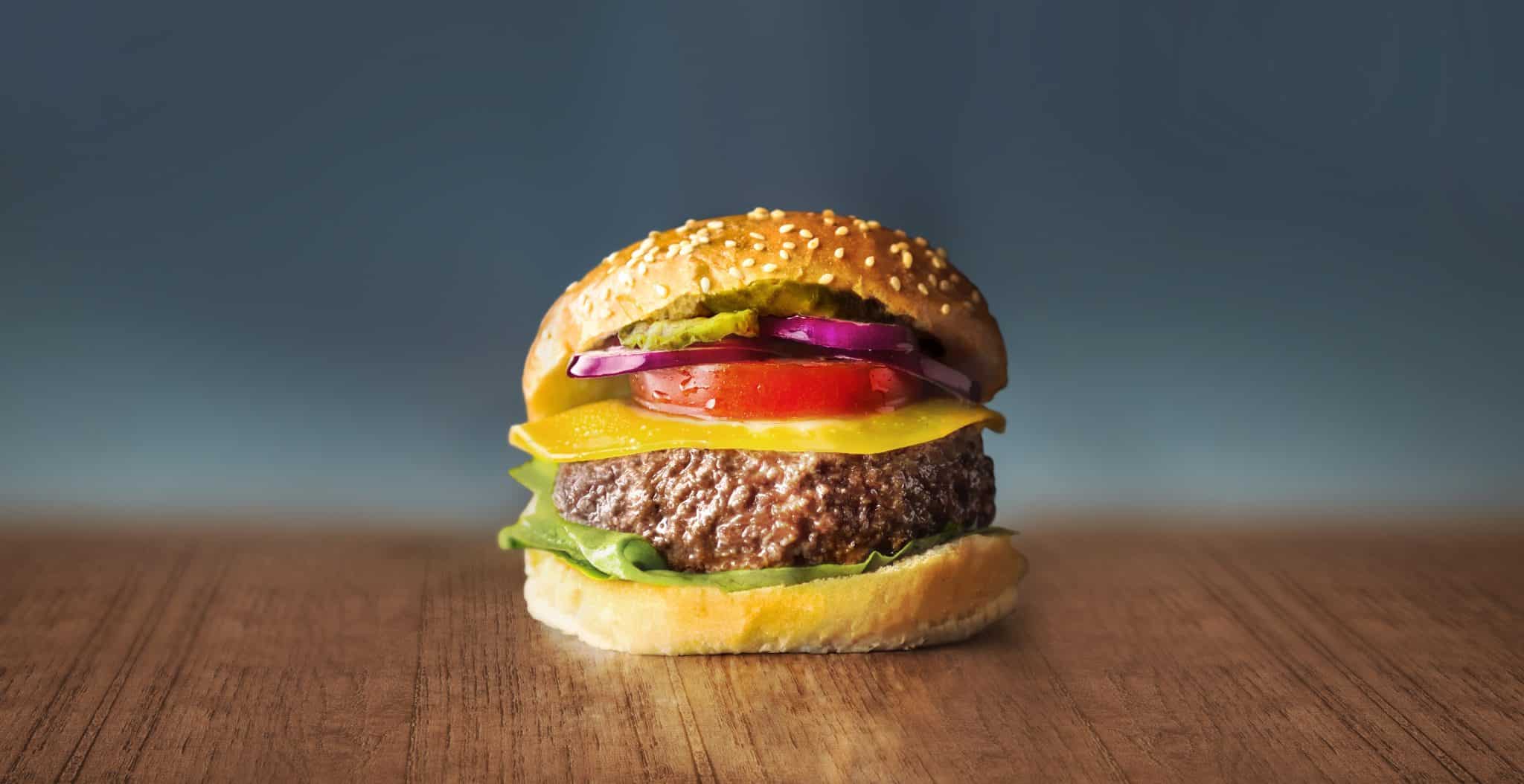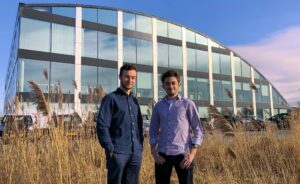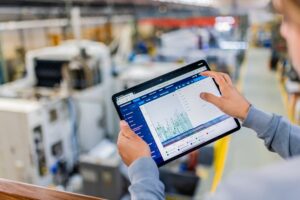Cultivated meat is an emerging innovation to watch in the food industry. In the last few years, there have been various advancements in this technology and the industry is continuing to evolve. Many climate experts advocate for a meatless diet for environmental reasons. However, global meat consumption is projected to grow more than 40% by 2030. Mosa Meat offers a more sustainable alternative to traditional meat production.
Mosa Meat is on a mission to fundamentally reshape the food system. Headquartered in Maastricht, The Netherlands and founded in 2016, the founders introduced the world’s first cultivated beef hamburger in 2013, by growing it directly from cow cells. They are now working towards commercialising cultivated meat, transforming how meat is produced, and bringing it to the masses.
We caught up with Maarten Bosch, CEO of Mosa Meat, to discuss Mosa Meat’s technology and its growing operations, how the cultivated meat industry is evolving, and the future of the food system.


Could you tell us about Mosa Meat’s technology and how you are producing cultivated meat without FBS?
Mosa Meat is pioneering a cleaner, kinder way of making beef. We start with a peppercorn-sized sample of cells from our donor cows, which we then cultivate into fully matured muscle and fat cells with carefully selected nutrients, vitamins, minerals and oxygen conditions. These cells grow into the same real minced beef you enjoy today, with a significantly lower land and water footprint, 92% lower carbon emissions and zero cows slaughtered. One cell sample can produce up to 80,000 burgers.
The Mosa Approach is to focus on beef first because it is the most climate-intensive protein, and we’re committed to reshaping the global food system by making the greatest planetary impact. We do not genetically modify our cells, and we focus on creating fully matured tissue to achieve parity in structure, taste, and nutritional profile with conventional beef.
Our co-founders committed to removing FBS from our process in 2016, when the company was founded, as it is neither ethical nor sustainable to use this animal-derived ingredient. In 2022, we published our recipe to cultivate beef muscle without FBS, and in early 2023 we published our recipe to cultivate fat without FBS. Our cell feed formulations contain non-animal derived natural ingredients, which we feed our cells so that they mature into fat or muscle tissue.
From your perspective, what actions need to happen to advance the cultivated meat category?
To build a robust ecosystem for cellular agriculture and advance the category, we need collaboration between the public and private sectors, non-governmental partners and other key stakeholders, including consumers and commercial partners. There are several ways Mosa Meat is involved in building this ecosystem:
- We regularly share our scientific progress with the community through publications like our serum-free beef and fat recipes. This knowledge is free to use by public actors.
- We co-founded the industry association Cellular Agriculture Europe to advance regulatory pathways and acceptance of cellular agriculture across Europe, and are also involved at a local level in the Netherlands, as well as globally in these conversations. For instance, we are co-founders of Cellular Agriculture Netherlands, which received the largest amount of public funding globally in cellular agriculture last year.
- We have commercial partnerships across the value chain, for example with Nutreco, Bell Food Group and Mitsubishi. These global players provide support by way of consumer insights in local markets, lowering costs across our value chain, as well as retail partnerships.
Of course, much more will be needed by all players in our industry. We invite financial, societal, governmental and scientific institutions to collaborate and further invest into the development of cellular agriculture to advance this nascent category.
Could you tell us about how you are approaching commercialisation at Mosa Meat?
Reaching meat parity in taste, structure and nutritional profile will define the commercial potential of cultivated meat.
In addition to bringing down costs, we are focused on creating a scalable production system and will implement it at industrial-size production levels in our new facility. We’ve expanded our total production facility footprint to more than 7,340 sq. metres (77,000 sq. feet). This makes us the largest cultivated meat campus in the world, and provides a solid foundation for our European and global commercialization plans.
Obtaining regulatory approval and getting our product in front of consumers are the next steps to commercialise cultivated meat. In addition to our conversations with regulators, we are communicating with consumers and customers and look forward to continuing to build trust and excitement for Mosa Meat burgers.
Could you tell us more about the expansion of your production facility?
Our new industrial production development centre houses industrial-size production lines, enabling us to make larger quantities of beef. We are excited to officially open the centre later this Spring as we continue to expand our campus in Maastricht.
A few cultivated meat companies are emerging in Europe and beyond. How do you manage competition in the cultivated meat market?
Since our co-founder, Dr. Mark Post, presented the world’s first cultivated hamburger in 2013, we have seen the entrance of many cultivated meat and ingredients companies in the market. We applaud the work that these companies are doing, and value collaboration in our nascent field.
For example, we co-founded the industry association Cellular Agriculture Europe with several of these companies. Additionally, every year we host the International Scientific Conference on Cultured Meat, which several of these companies attend to present their research.
Let’s look into the future. What do you think the future of cultivated meat and the food system looks like?
Food systems around the world face a lot of challenges including vulnerability to supply shocks like the war in Ukraine, greenhouse gas emissions and biodiversity loss. These are serious challenges that will require systems-level changes and cultivated meat is one of the tools that has to be in the tool box.
One prediction by BCG last year projected alternative protein to grow from 2% to 11% of the total animal protein market in 2035 (valued around €290 billion) of which cultivated products would make up 6 million metric ton (around 0.7% of the total animal protein market, valued at €18 billion). Cultivated meat is an important complement to reforms of conventional agriculture, which combined will help us feed a growing planet sustainably.
Our readers are excited about the future of food with cultivated meat and the companies building in this space. What’s next for Mosa Meat?
We’re excited to be entering a new phase of preparation for the introduction of commercial products, and gearing up to sell them across the globe. In the next few years we will be focused on obtaining regulatory approval for the sale of cultured meat, scaling up production and introducing our first products to market.
- SEO Powered Content & PR Distribution. Get Amplified Today.
- Platoblockchain. Web3 Metaverse Intelligence. Knowledge Amplified. Access Here.
- Source: https://www.eu-startups.com/2023/02/cultivating-the-future-of-food-interview-with-maarten-bosch-ceo-of-mosa-meat/
- 000
- 2%
- 2016
- 2022
- 2023
- 7
- 77
- a
- About
- acceptance
- Achieve
- across
- actions
- actors
- addition
- Additionally
- advance
- advancements
- Advertisement
- advocate
- agriculture
- All
- alternative
- amount
- and
- animal
- approaching
- approval
- around
- Association
- attend
- BCG
- because
- Beef
- Bell
- between
- Beyond
- Billion
- Bosch
- Box
- Bringing
- build
- build trust
- Building
- burger
- Campus
- carbon
- carbon emissions
- carefully
- Category
- caught
- Cells
- centre
- ceo
- chain
- challenges
- Changes
- Climate
- Co-founder
- co-founders
- collaboration
- combined
- commercial
- commercialization
- committed
- communicating
- community
- Companies
- company
- competition
- Complement
- conditions
- Conference
- consumer
- Consumers
- consumption
- continue
- continuing
- conventional
- conversations
- Costs
- course
- Creating
- Cultivate
- Customers
- Derived
- Development
- Diet
- directly
- discuss
- doing
- down
- Early
- ecosystem
- emerging
- Emissions
- enabling
- enjoy
- entrance
- environmental
- ethical
- Europe
- European
- Every
- evolve
- evolving
- example
- excited
- Excitement
- Expand
- expanded
- expansion
- experts
- Face
- Facility
- Fat
- Feet
- few
- field
- financial
- First
- Focus
- focused
- food
- Footprint
- Forward
- Foundation
- Founded
- founders
- Free
- from
- front
- fully
- fundamentally
- funding
- further
- future
- Future of Food
- GAS
- gearing
- getting
- Global
- Globally
- globe
- governmental
- greatest
- greenhouse gas
- Greenhouse gas emissions
- Group
- Grow
- Growing
- happen
- headquartered
- help
- host
- houses
- How
- However
- HTML
- HTTPS
- image
- Impact
- implement
- in
- Including
- industrial
- Industrial Production
- industry
- Innovation
- insights
- instance
- institutions
- International
- Interview
- introduced
- introducing
- Introduction
- invite
- involved
- IT
- Key
- knowledge
- Land
- larger
- largest
- Last
- Last Year
- Level
- lines
- local
- Look
- LOOKS
- loss
- Lot
- make
- MAKES
- Making
- manage
- many
- mark
- Market
- Markets
- masses
- mature
- max-width
- Meat
- metric
- million
- minerals
- Mission
- modify
- more
- most
- nascent
- Natural
- Need
- needed
- Neither
- Netherlands
- New
- next
- obtaining
- Offers
- Officially
- ONE
- open
- Operations
- Other
- Oxygen
- parity
- partners
- partnerships
- perspective
- phase
- Pioneering
- planet
- plans
- plato
- Plato Data Intelligence
- PlatoData
- players
- Post
- potential
- prediction
- present
- presented
- private
- process
- produce
- Produced
- Product
- Production
- Products
- Profile
- Progress
- projected
- Protein
- provide
- provides
- public
- publications
- published
- readers
- real
- reasons
- received
- recipe
- Recipes
- regularly
- Regulators
- regulatory
- regulatory approval
- removing
- require
- research
- retail
- robust
- sale
- same
- scalable
- scaling
- Sectors
- selected
- sell
- serious
- several
- Share
- significantly
- So
- societal
- solid
- Space
- spring
- SQ
- stakeholders
- start
- Steps
- structure
- supply
- support
- sustainable
- system
- Systems
- Technology
- The
- The Future
- the Netherlands
- the world
- their
- Through
- to
- today
- Ton
- tool
- tools
- Total
- towards
- traditional
- transforming
- Trust
- Ukraine
- us
- use
- value
- valued
- various
- vulnerability
- war
- War in Ukraine
- Watch
- Water
- ways
- What
- which
- will
- without
- Work
- working
- world
- world’s
- would
- year
- years
- Your
- zephyrnet
- zero











